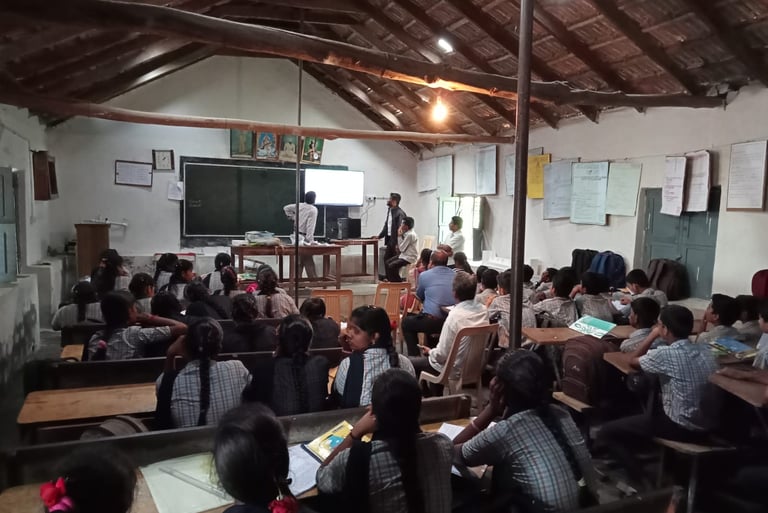Digital Education in Rural Govt. Schools
In recent years, digital education has become increasingly important in rural schools in India as a way to improve access to education and bridge the digital divide between urban and rural areas.
One approach to implementing digital education in rural schools has been through the use of information and communication technology (ICT) tools and resources, such as computers, tablets, and educational software. These tools can be used to support a range of learning activities, including online classes, interactive lessons, and collaborative projects.
Another approach has been to use mobile technologies, such as tablets, to deliver educational content to students in rural areas. This can be particularly useful in areas where access to traditional classroom facilities is limited or where there is a shortage of teachers.
In addition to providing access to educational resources, digital education can also help to improve the quality of education in rural schools by providing teachers with access to professional development opportunities and resources for lesson planning and classroom management.
Overall, digital education has the potential to significantly improve the education landscape in rural India by increasing access to education and improving the quality of teaching and learning.
About the project
Starting point
Engaging with educational experts, we uncovered what the most fundamental tools are for trainee teachers. This included how much time was required for training.
Support from local communities
Finding out the main enduring barriers to education, as well as the most essential requirements to childhood development, was at the core of our mission here.


